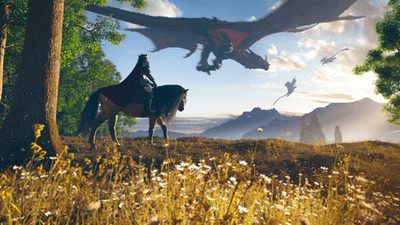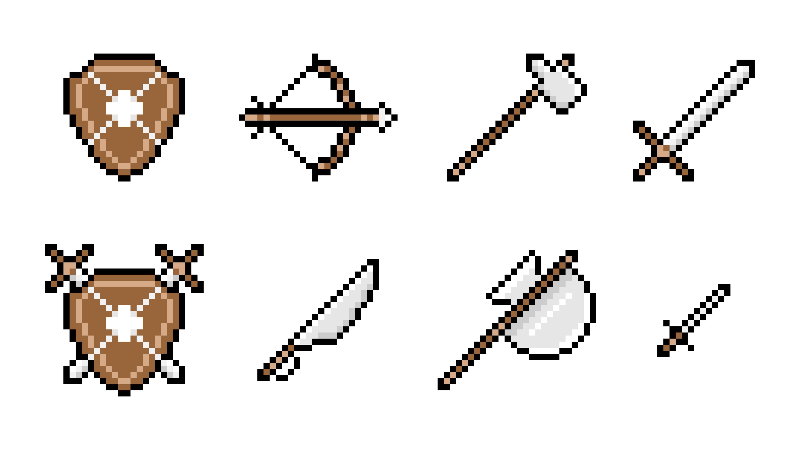Eastern vs. Western Games

Today, we’ll be comparing the different game philosophies between the two halves of the world. All gamers want to have fun, but they may have different definitions of fun depending on where they live. Here’s an analysis of eastern vs. western games.
Table of Contents
Freedom and Fantasies of Power
In the West, there’s a running theme of a ‘power fantasy.’ Western gamers want to feel powerful, and their games cater to that. You’ll see underdogs becoming heroes of the land or already-competent protagonists losing their gear to justify progress through the game.
It’s an escape from real life where you are, as a normal human being, powerless against many things. With video games, that is no longer the case. You can be a space marine fighting the legions of hell or against aliens. Otherwise, you could be the lone cowboy, the only survivor of your hometown or family, or the chosen one of a prophecy.
These games give the player a few hours to imagine themselves as more powerful than in real life. It comes with the adoration and envy (of NPCs, but that’s better than none), so that’s a bonus. Also, they can use that power however they want. Whether it’s to kill everyone who annoys them or help out, these games are a playground for action. There aren’t any real-life consequences to doing morally wrong things in-game, anyway.
Also, western gamers gravitate to games of skill, such as FPS games, where twitch reflexes and hand-eye coordination is critical. It shows in western RPGs too, where most of the action is done in real-time, while eastern RPGs are more turn-based and strategic.
The Power of Friendship and a Struggle to Overcome Odds
Eastern games have a different outlook. While most western game protagonists are lone wolves, eastern game protagonists have a party filled with characters who support the hero/ine. Also, easterners believe in hard work, so their games end up what the westerners call ‘grindy.’
Leveling up and building stats are focused on eastern games. As said above, they are more strategic through turn-based combat and management of inventory. Players are guided on a journey of friendships (sometimes romantic but mostly platonic), and most game plots are about ‘protecting’ something or someone.
Eastern protagonists are more often than not overpowered by their antagonists until the final parts of the game. At that point, the hero has grown strong enough to turn the tables, and the world is saved. There is a struggle that the player character must go through, something the western games don’t experience.
Another difference is linearity. Western RPGs usually have a wide-open world players can explore and do quests at their leisure. Eastern ones are more restrictive in that matter. Most side quests may only be received and completed while within particular areas. Usually, those can be completed within those same locations, so they miss out on rewards if the player moves on before ending them.
Where They Overlap
Of course, there are always overlaps and games sharing the same mechanics and philosophies. With mobile gaming, players appreciate turn-based and strategic games rather than something that’s skill and reflex-based .
With the world becoming more connected through the internet, eastern games borrow more features from western ones; the opposite also holds true. Just look at The Legend of Zelda: Breath of the Wild — it’s a wide-open world game where you can go anywhere and do anything. On the other side, there’s the Dragon Age series, where your player character is always accompanied by companions.
There will always be a difference between the two, but the lines are getting blurry. Western games keep on pushing boundaries and breaking limits, while eastern ones are pretty similar to each other. The reason for the latter is something like ‘if it works, why change it?’ There are slight improvements, but the basics stay the same.
By combining these aspects, games can break boundaries balanced by sticking with what’s tried and true. Look at Stardew Valley. It’s a farming simulator in the vein of Harvest Moon. With the addition of some western features and mechanics, it has become one of the best-selling games on multiple consoles.
Like Games, Like Players
This type of difference also shows in the general preferences of players. Mainly, westerners prefer FPS and beat em’ ups. In contrast, easterners prefer strategy and games that promote cooperation. This isn’t a hard and fast rule, as any player can be influenced by or like both styles of games.
It all boils down to your preference. If a friend doesn’t seem to like the games you play, that’s just preferences at work. Find common ground and see where that takes you. Maybe you’ll also appreciate their taste in games even if you never thought you would.
Like so, there also aren’t game genres that are better than others. Just because you don’t like the games others do doesn’t give you any authority to think the types you want (and, by extension, you) are better than them.
Gamers, at their core, are those who play and enjoy games. Whether casual or hardcore, we all share the love of gaming. Agree to disagree and let others enjoy their preference in games. Remember to have fun when playing the games you like!














